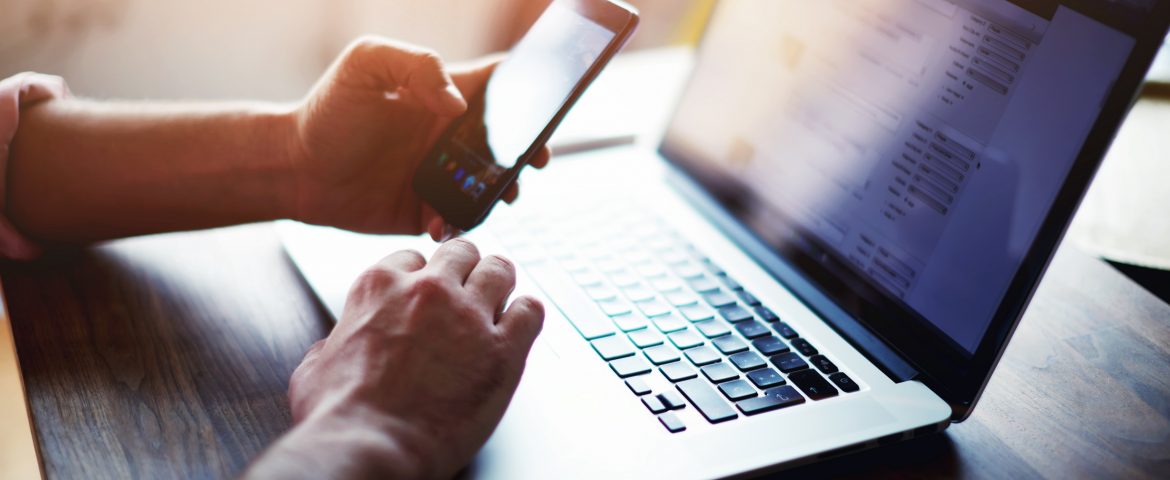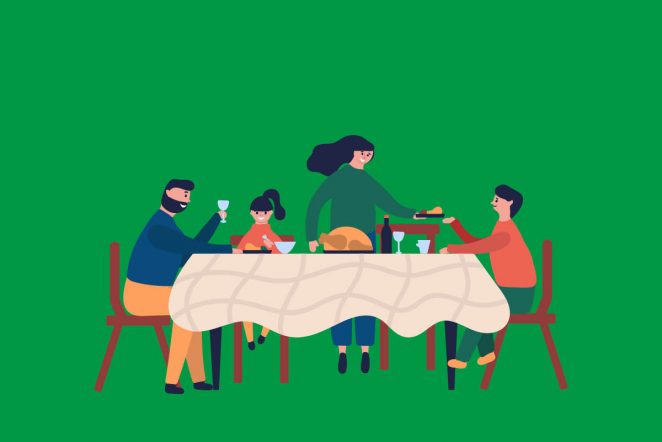National Simplicity Day falls on July 12 every year in honor of author, naturalist, philosopher and leading transcendentalist Henry David Thoreau—born on July 12, 1817. Thoreau was an advocate for living a life of simplicity.
As a society, slowing down isn’t always easy as we’re more connected than ever—with 96% of Americans owning a cell phone and one in four admitting they’re “constantly online,” according to the Pew Research Center. While our phones, tablets and laptops bring us desired information and constant connectivity, researchers say we could all benefit from breaking the digital cycle every so often.

If a digital detox sounds like it might be something you want to try this summer, here are our top 12 tips in honor of July 12 to make it happen. And if you aren’t quite ready to go completely cold turkey with no tech, that’s OK. Try implementing just one or two of these tips to disconnect from digital, and reconnect with yourself and those around you.
1. Check your settings.
Remove work email notifications and social media push notifications for a break from the constant alerts. Studies show Americans check their phones on average once every 12 minutes, adding up to 80 times per day. Instead, use that time to go for a quick half hour walk outside with a friend, family member or colleague if you’re at work.
2. Set time limits.
Most of us need to check email for work or personal matters, and can’t go too long without knowing what our friends all around the world are up to. That’s great—just remember you can set and control the limits on how much time you spend online. Check your email once a day in the morning and again in the afternoon. Respond to, delete or file emails for later in a 20 minute or half hour time frame. For social media, set a timer on your phone to browse Facebook or Instagram. When the time is up turn off your device and head outside or off to do a non-digital task to give your brain a break from scrolling newsfeeds.
3. No screens before bed.
This is a tech tip that science says works. In fact, research shows that those who look at a phone or tablet in bed before falling asleep took on average 10 minutes longer to doze off compared to those reading normal print. Digital before dozing also decreases the production of Melatonin, a hormone that promotes deep sleep, and decreases the REM sleep stage that’s tied to your creative and problem-solving skills. Try setting an alarm right at bedtime and then turn off your devices. Let them charge and refresh, just like you should be doing overnight to get good rest.
4. In fact, no screens in the bedroom at all.
Your bedroom should be a place for rest, not work or stress. Make your bedroom your sleep sanctuary—that means limiting light exposure from digital clocks, phones and TV screens. Trust us,

there is nothing like a good solid night of sleep to leave you feeling ready for the day. (See more sleep tips here.)
5. Collect screens at mealtimes.
Is everyone at the dinner table scrolling through their phones instead of talking to each other? Remove the temptation by having a tech basket to drop phones or tablets in as mealtime starts. You could even create a charging station away from the table. Whether it’s a weekend brunch or a weekday evening meal, your meal guests will all be more engaged in quality conversation—and they may not even miss their phones.
6. One screen at a time.
When you do need screen time for work or other important to-do’s like paying bills or shopping for essentials, experts say a good limit for your eyes and your brain is one screen only. Do you ever scroll social media sites on your phone while you’re watching TV? Try limiting yourself to one digital activity at a time.
7. Remove digital distractions.
If you’ve committed to a non-digital activity like reading a paper book or magazine, playing a board game or cards or heading outside for an after-dinner walk, remove digital distractions. That means silencing or turning off your phone, closing the laptop screen and leaving the TV off. Instead, be present in the moment.
8. Try an electronic fast.
Have a free weekend or day off coming up? Try a day or two of fasting from electronics. Of course you can have your phone nearby for emergency calls or checking on family/friends, but a 24-hour electronic fast can recharge your own batteries and allow you to truly feel refreshed. Instead, schedule outdoor activities during this time—like a hike, bike ride or trip to a local beach or park. Here are some creative ways to get outdoors and active this summer in Michigan if you need some ideas.

9. Get mutual support.
Too afraid to try detaching from digital on your own? Don’t go it alone. Get a friend or family member (or two) to join you. You can share tips of what works best, what you both learn and feel during the process, and find support in each other. Just like the benefit of having an exercise or healthy eating partner or group, you’ll likely have better success if you have strong support around you.
10. Tell people you’re detoxing.
To avoid feelings of guilt or missing out, tell your closest friends, family members or even work colleagues that you’re trying to detox from digital a bit. This way, any crucial updates can be delivered with a real phone call or even an in-person visit—leading to more quality, deeper connections with those around you. And who knows, you may even inspire them to give it a try for their own benefit.
11. Say “Happy Birthday” in person.
On your birthday, you probably get inundated with tons of notifications of birthday wishes via social media or text messages—even if you haven’t actually seen or spoken to said well-wishers for years. To avoid being just another birthday pop-up greeting on someone’s phone, make time to get together and say happy birthday in person. Show you really mean it and as a bonus, you’ll both have some tech-free time to connect.
12. Turn on airplane mode for a break.
If you’re having a hard time turning your phone or other devices completely off, try taking a vacation vibe approach and turning on airplane mode. This is a great option if you’re trying to focus on working out, studying or completing a lengthy task—since airplane mode pauses incoming calls and texts to help keep your mind on the task at hand.

To celebrate National Simplicity Day this July, try one or two of these tips—or all 12 if you’re game for a major brain break. In return, you’ll enjoy the many benefits of going tech-free, like a boost in productivity and even learning, plus better rest and more meaningful connections with those around you.


